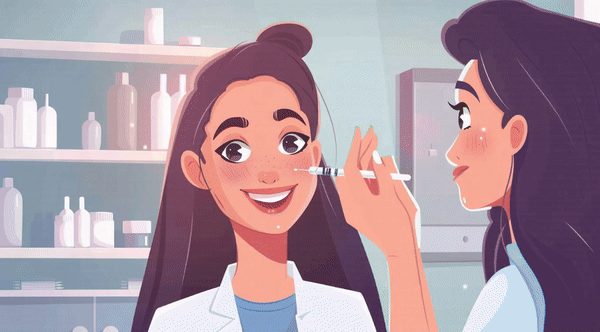By Dr. Dan Troast, AuD and Chair of HearUSA HCP Advisory Board
About a decade ago, researchers asked roughly 200 people who’d failed a telephone-based hearing test what they did next. Sadly, just 36 percent said they’d sought help for their hearing condition.
Naturally, there have also been studies to determine why that’s the case. Why do people, even when they are aware of their troubled hearing, not realize that hearing care professionals (HCPs) are there to help?
By some analysis, the factors that influence people’s decisions to simply seek hearing health assistance differ somewhat from those that impact eventual hearing aid adoption. Either course of action can ultimately improve overall health. Therefore, addressing these different concerns is key, because no one can tackle their hearing challenges until they take the first step and get help. Or as the experts put it, “Expanding our understanding of hearing help-seeking is especially important with the rapidly changing landscape in hearing aid service delivery models.”
During Audiology Awareness Month, it’s important not only to recognize the value of hearing health, but also to consider the challenges some face in achieving it. Most people know what to do when they break a bone or have a sore throat; they don’t necessarily know (or know where to find) someone who can help with their hearing. Virtually everyone can tell you that 20/20 vision is normal, but less than one in 10 knows what normal hearing is.
You can’t fix what you don’t know ails you — nor if you don’t know who can fix it.
Appreciating the Role of Hearing Care
For most people, hearing care is an afterthought. A recent survey of 1,250 people found that nearly half take their pet to the vet before thinking of getting their hearing checked. More than three-quarters rely on their primary care physician for hearing health information. But that said, primary care physicians, according to researchers at the University of Michigan, refer patients to audiologists at a rate of anywhere from less than 1 percent to about 13 percent.
When you Google “hearing care professional,” you see the questions people often ask online, such as “What is a professional who helps people with hearing challenges?”, “Should you go to an ENT or audiologist for hearing loss?” and “Is it better to go to an audiologist?”
The answer to the last question, of course, is yes. Trained hearing care professionals are important healthcare providers because treating hearing loss is so vital to overall health. It’s been shown that hearing loss can impact cognitive health, for instance. Hearing loss has also been linked to diabetes, hypertension, obesity, and cardiovascular disease.
But understanding the risks of hearing loss—not to mention the advantages of hearing care, including hearing aids—is of small benefit to those who don’t actually seek help. And why don’t they seek help? The reasons tend to fall into a few broad categories:
Awareness. As noted earlier, many don’t know there are professionals who specialize in hearing. Not only is it crucial that initiatives like Audiology Awareness Month highlight the importance of hearing health, it’s also important to shine light on the available pathways to hearing care. Getting people to understand they should have their hearing checked is one thing; helping them actually do it is another, whether that’s introducing them to the role of HCPs or encouraging them, during their annual checkup, to simply ask for a screening.
Engagement. Getting people to seek hearing care may also come down to how it’s talked about. There have been studies of how doctors and HCPs communicate with patients, first about hearing loss and then about hearing aids. In one, it was found that speaking in casual, everyday language about hearing loss can have a positive effect on engaging people in their own hearing care, but then pivoting to more scientific, medical language about hearing aids made patients more inclined to adopt them. In other words, once people are aware of the path toward better hearing, guiding them along that journey toward hearing help means different things at different stages.
Access. Perhaps unsurprisingly, awareness and engagement hit a snag when people can’t find hearing care near them. Researchers have found, for example, that people living in rural communities have a harder time accessing hearing care and therefore wait years longer to actually adopt hearing assistance. But even in suburban or urban areas, access to HCPs is a critical determinant of whether people seek and successfully engage in hearing care. And once people are aware of and find the hearing care they need, access extends to the hearing assistance itself. Global initiatives to make hearing care and aids more widely available and accessible certainly help.
Committed to Hearing Care Accessibility
For its part, HearUSA is committed to awareness, engagement, and access. In addition to its own network of 4,000 audiologists and HCPs, HearUSA works with primary care providers in helping people seek care. In some cases, when doctors screen for and suspect hearing loss, patients can see an HCP in the same or a nearby office, speeding them on their journey to hearing health.
In terms of hearing assistance, HearUSA makes available a full spectrum of solutions, including a new class of over-the-counter hearing aids for maximum access to modern technology.
As with general telemedicine, hearing care access may ultimately include remote engagement. Already, online hearing tests can be a significant first step in a hearing care journey. Experts have found computer-based, home hearing tests to be accurate and cost-effective, suitable for use in locations where HCPs may not yet be prevalent via community centers or libraries.
Soon, hearing care awareness will be universal. Then, so will hearing health.
This is a sponsored post
Digital Health Buzz!
Digital Health Buzz! aims to be the destination of choice when it comes to what’s happening in the digital health world. We are not about news and views, but informative articles and thoughts to apply in your business.


